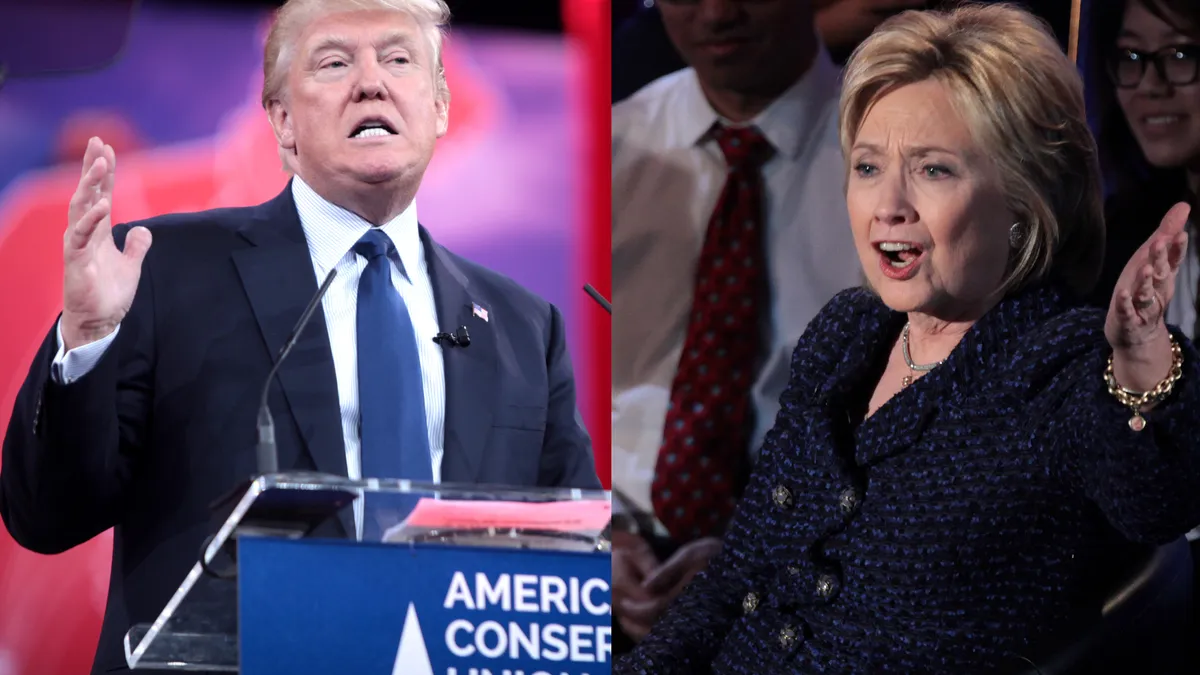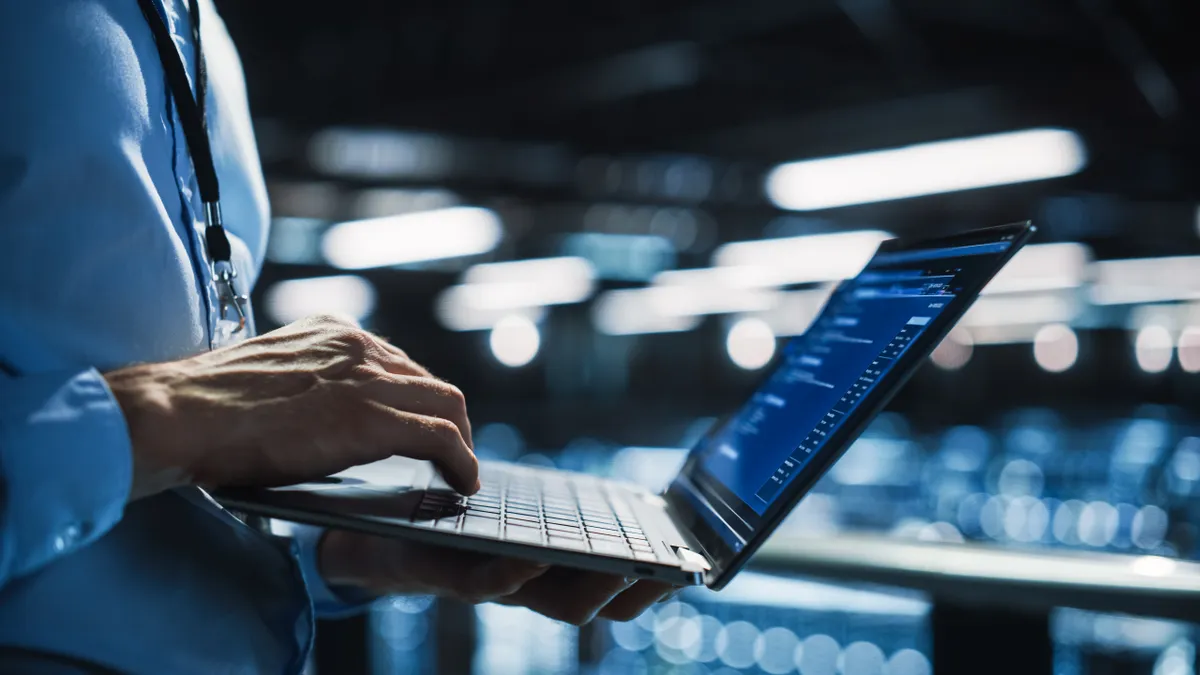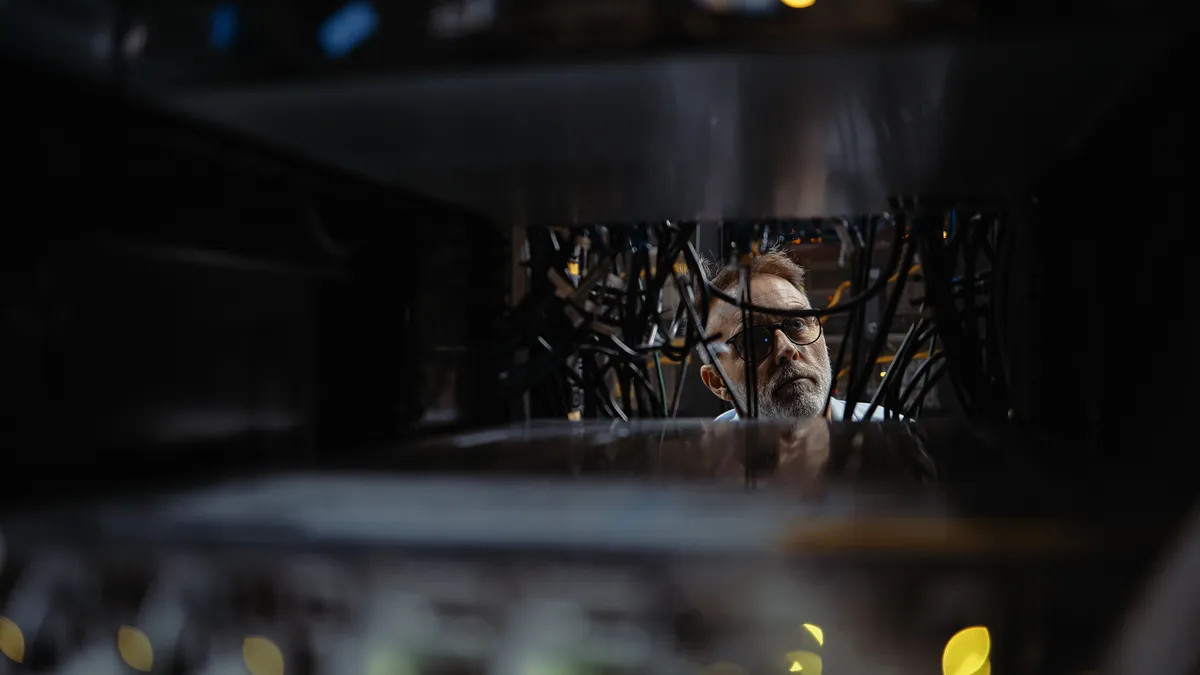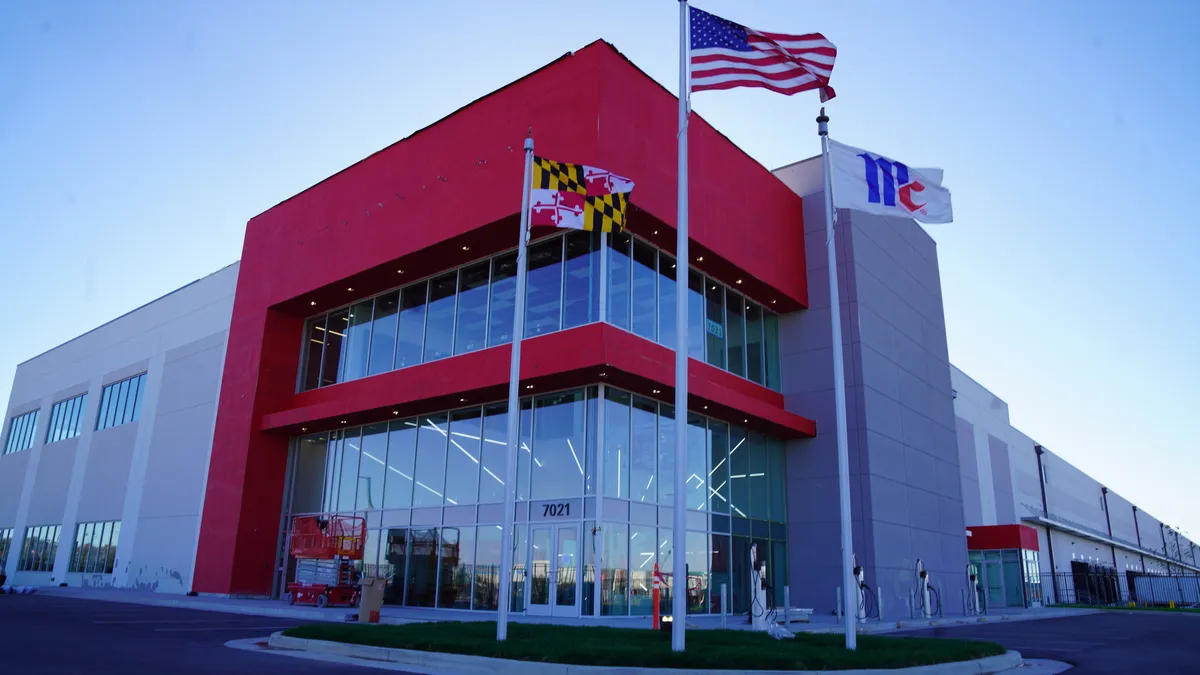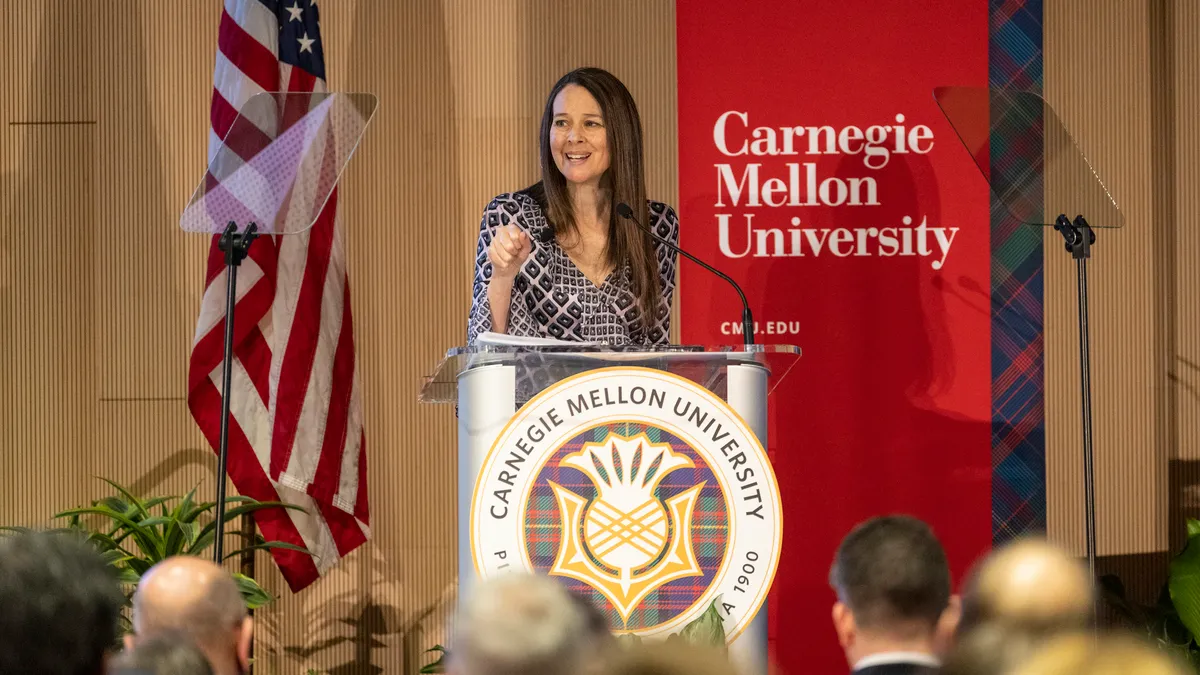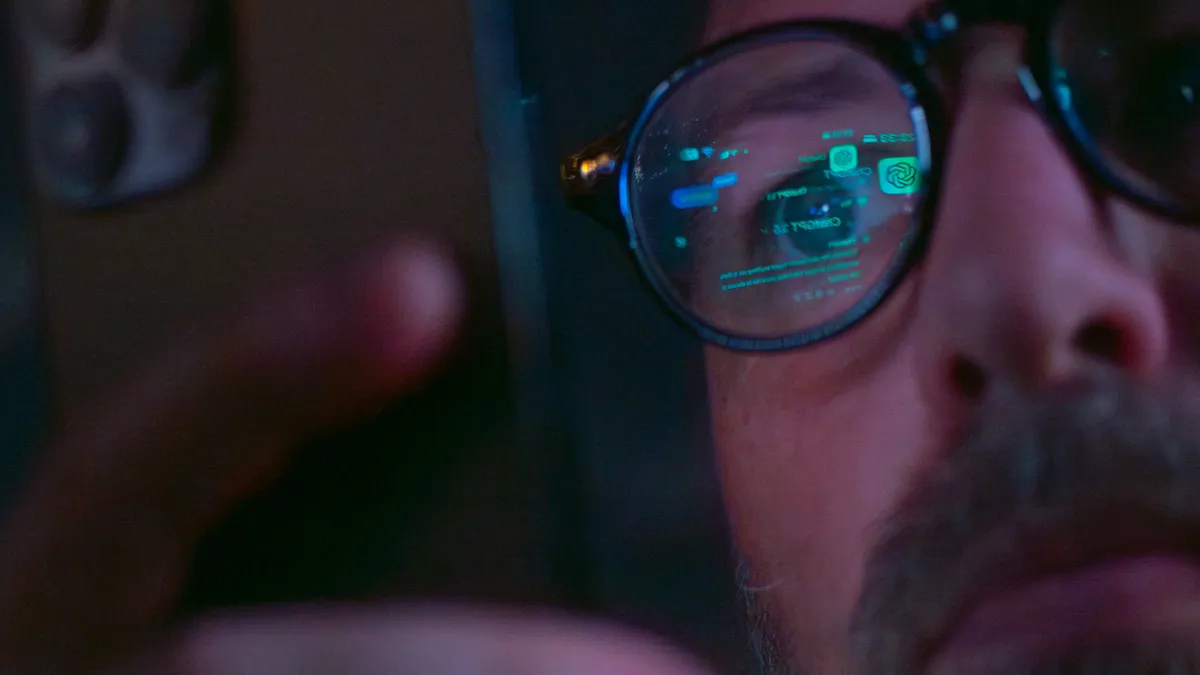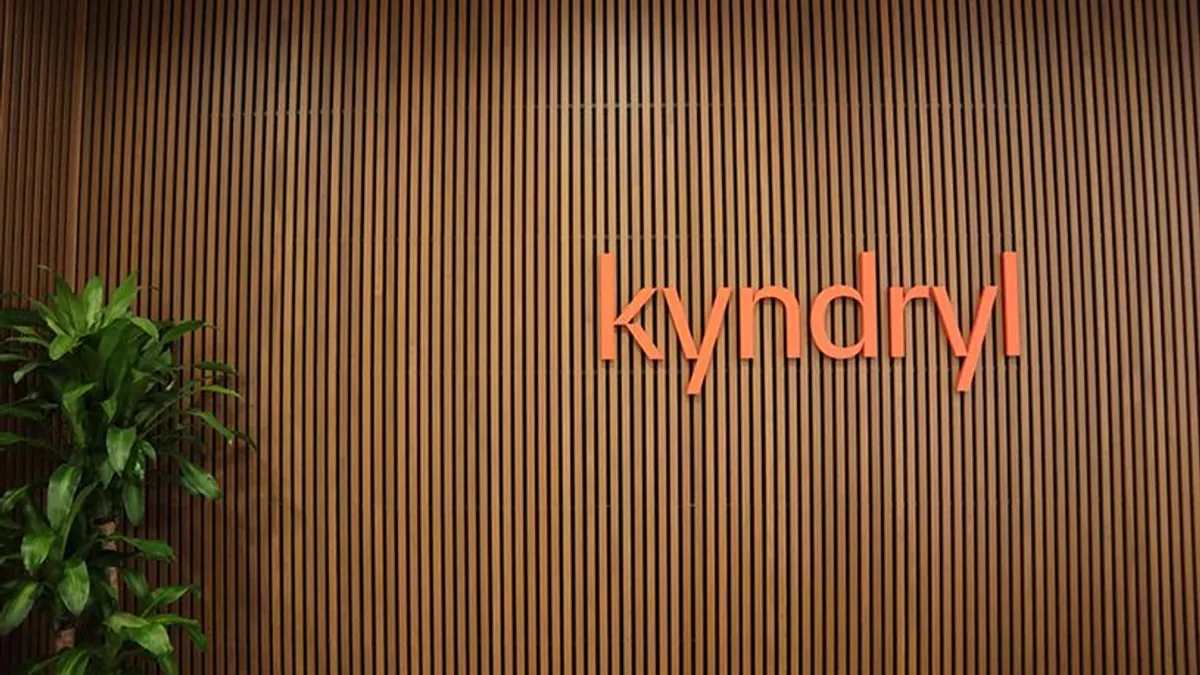The United States is less than a week away from choosing either Democratic nominee Hillary Clinton or Republican nominee Donald Trump for president, and with that choice will come a host of likely actions on cybersecurity, privacy, H-1B work visas and other issues that affect CIOs. And to the surprise of no one, the two major candidates have different stances on those issues.
Both candidates stand atop policy platforms that could reshape how businesses run enterprise technology and navigate the tech talent labor market. As such, industry leaders often have announced their support for one candidate over another — in many cases, tech leaders have moved to support Clinton.
Employees from 20 of the country’s largest tech companies, including Facebook, Dell, Hewlett Packard, Amazon, Google and Oracle, have donated approximately $4.4 million to the Clinton campaign, according to a BuzzFeed News analysis of election donation data from the Federal Election Commission. By comparison, employees from those companies donated just $136,000 to Trump.
Clinton also snagged support and "substantial" contributions from Meg Whitman, CEO of Hewlett Packard Enterprise, a long-time Republican. In August, Whitman called Trump "a dishonest demagogue" in an interview with The New York Times.
"I will vote for Hillary, I will talk to my Republican friends about helping her, and I will donate to her campaign and try to raise money for her," Whitman told the Times. As a result, she has campaigned for Clinton and hosted campaign events.
One high-profile Trump supporter in Silicon Valley is Peter Thiel, a venture capitalist and co-founder of both PayPal and Palantir. Thiel spoke at the Republican National Convention and donated $1.25 million in support of the Trump campaign.
"A lot of successful people are too proud to admit it, since it seems to put their success in question, but the truth is no matter how crazy this election seems, it is less crazy than the condition of our country," Thiel said Monday during an appearance at the National Press Club in Washington. He said the GOP nominee had amassed support "because of the big things Trump gets right."
The election is set to reshape the direction of technology and how enterprises run in the U.S. For Clinton, that means continuing President Barack Obama’s tech legacy. But for Trump, that means reshaping how many businesses operate.
Below are three policy platforms for each candidate that would impact businesses and what each of the candidate’s have said:
Clinton: Clinton is largely looking to build on the Obama Administration’s efforts to curb cyber-espionage and its Cybersecurity National Action Plan, emphasizing the need to strengthen cybersecurity for both the government and private sector, according to her platform.
Because cybersecurity is "essential to both economic and national security," increased investment in technologies and increased collaboration and information sharing between the public and private sector is necessary.
"I think cybersecurity and cyber warfare will be one of the biggest challenges facing the next president, because clearly we’re facing at this point two different kinds of adversaries. There are the independent hacking groups that do it mostly for commercial reasons to try and steal information that they can use to make money. But increasingly we are seeing cyberattacks coming from states, organs of states. The most recent troubling of these has been Russia … We need to make it very clear — whether it’s Russia, China, Iran or anybody else -- the United States has much greater capacity. And we are not going to sit idly by and permit state actors to go after our information, our private-sector information or our public-sector information." — Clinton, during the first presidential debate.
Trump: Trump has called for the creation of a Cyber Review Team from military, law enforcement and private sector individuals to provide recommendations on how to safeguard "different entities with the best defense technologies tailored to the likely threats," according to his platform.
The team would also create protocols and mandatory cyber awareness training for all government employees and ensure officials stay abreast of "evolving methods of cyberattack."
"Cyber theft is the fastest growing crime in the United States. As President, improving cybersecurity will be an immediate and top priority for my administration. One of the very first things I will do is to order a thorough review of our cyber defenses and weaknesses, including all vital infrastructure. Cyberattacks from foreign governments, especially China, Russia and North Korea along with non-state terrorist actors and organized criminal groups, constituted one of our most critical national security concerns … The scope of our cybersecurity problem is enormous. Our government, our businesses, our trade secrets, and our citizens’ most sensitive information are all facing constant cyberattacks." — Trump’s prepared comments on cybersecurity.
Clinton: In her platform, Clinton has called for strong data protections and privacy, particularly with the rise of Big Data and the Internet of Things. She calls for regulatory enforcement of a high standard of consumer privacy protections, without "stifling innovation."
Clinton says she does not believe privacy has to be sacrificed to keep people safe. As part of that, she supports the creation of a commission for digital security and encryption, that would work technology and law enforcement communities to protect both the privacy and security of Americans. But, with the development of the San Bernardino case and the efforts of the FBI to use Apple to unlock an iPhone used by one of the shooters, Clinton sided with the FBI.
"There has got to be some way to protect the privacy of data information … There has got to be some way to avoid breaking data encryption and opening the door to a lot of bad actors. But there has to be some way to follow up on criminal activity and prevent crimes and terrorism." — Clinton, speaking in Grand Rapids, Mich., according to Bloomberg.
Trump: Trump came out as a strong critic of Apple during the campaign, calling on the company to permit FBI access to the iPhone in the interest of national security. He called for an Apple boycott until the company agreed to work with the FBI.
"To think that Apple won't allow us to get into her cellphone? Who do they think they are? No, we have to open it … I agree 100% with the courts. In that case, we should open it up. I think security overall — we have to open it up. And we have to use our heads. We have to use common sense. Somebody the other day called me a common-sense conservative. We have to use common sense. Our country has so many problems." — Trump, during an interview with "Fox & Friends."
Clinton: She has repeatedly called for investments in computer science and STEM education to help bolster the "human talent pipeline," according to her platform.
Clinton intends to continue the Obama Administration’s "Computer Science Education for All" effort so students have access to the coursework that would allow them to join the workforce as computer science professionals.
To also boost the tech workforce in the U.S., Clinton wants to also "staple" a green card to those professionals from outside the U.S. who have masters and PhDs. She has, however, expressed concerns about how corporations use foreign tech workers to replace American workers for lower cost high tech labor.
"One of the biggest complaints I hear around the country is how callous and insensitive American corporations have become to American workers who have skills that are ones that should make them employable. The many stories of people training their replacements from some foreign country are heartbreaking, and it is obviously a cost-cutting measure to be able to pay people less than you would pay an American worker." — Clinton, in an interview with Vox.
Trump: Trump has lambasted the current state of immigration in the U.S., saying he is prioritizing American jobs, wages and security. He says he wants to create a process to select immigrants based on their likelihood of finding success in the U.S. and their ability to remain financially self-sufficient, according to Trump’s immigration platform.
As part of his platform, Trump has come out as a vocal opponent of the current H-1B visa program and wants to make it more difficult for tech companies to replace U.S. workers with foreign workers.
"I remain totally committed to eliminating rampant, widespread H-1B abuse and ending outrageous practices such as those that occurred at Disney in Florida when Americans were forced to train their foreign replacements. I will end forever the use of the H-1B as a cheap labor program, and institute an absolute requirement to hire American workers first for every visa and immigration program. No exceptions." — Trump, speaking on visas.
See Also: Hacking the election: 'A little chaos can go a long way'



